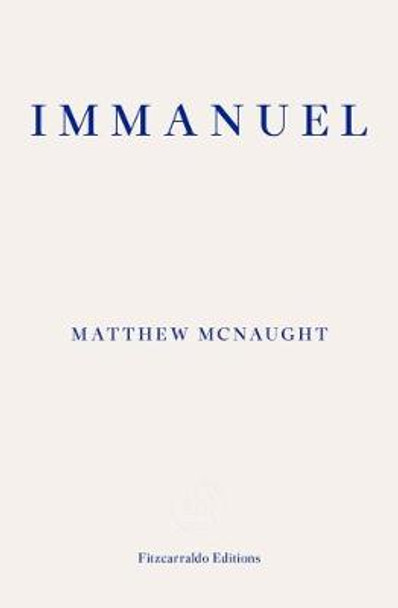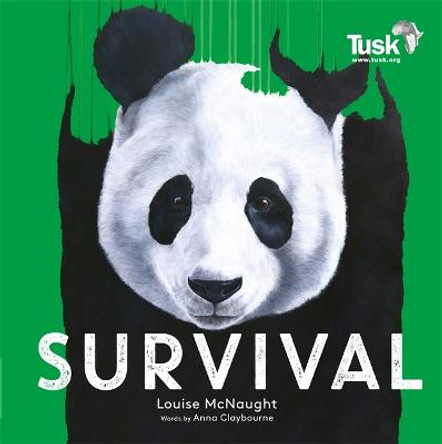Description
At what point does faith turn into tyranny? In Immanuel, winner of the inaugural Fitzcarraldo Editions Essay Prize, Matthew McNaught explores his upbringing in an evangelical Christian community in Winchester. As he moved away from the faith of his childhood in the early 2000s, a group of his church friends were pursuing it to its more radical fringes. They moved to Nigeria to join a community of international disciples serving TB Joshua, a charismatic millionaire pastor whose purported gifts of healing and prophecy attracted vast crowds to his Lagos ministry, the Synagogue Church of All Nations (SCOAN). Years later, a number of these friends left SCOAN with accounts of violence, sexual abuse, sleep deprivation and public shaming.
In reconnecting with his old friends, McNaught realized that their journey into this cult-like community was directly connected to the teachings and tendencies of the church of their childhood. Yet speaking to them awakened a yearning for this church that, despite everything, he couldn't shake off. Was the church's descent into hubris and division separable from the fellowship and mutual sustenance of its early years? Was it possible to find community and connection without dogma and tribalism? Blending essay, memoir and reportage, Immanuel is an exceptional debut about community, doubt, and the place of faith in the twenty-first century.
About the Author
Matthew McNaught has written for the Guardian Long Reads and n+1. He lives in Southampton, where he works in mental health. He won the inaugural Fitzcarraldo Editions Essay Prize for Immanuel, his first book.
Reviews
'Matthew McNaught is a strong and welcome new voice in essayism, clear-sighted and hugely empathetic. In this deeply affecting account of his own spiritual journey, he weaves in and out of the byways of religious belief once known as "enthusiasm", charting the body-shaking, mind-breaking experiences of friends and strangers alike. By turns cynical, doubtful, wounded and yearning, his words give astonishing shape to the space that only faith can fill.'
- Marina Benjamin, author of Insomnia
'"Empathy" is a popular critical buzzword, but Matthew McNaught's writing exemplifies the work of empathy at its most intense and, dare one say, sincere. Whether his subject is ordinary Syrians trapped by war or the fellow parishioners of his childhood church, ensnared by a false prophet, he always gives voice to the motives and emotions of those he writes about, mixed as they are and fraught with tragic consequence. McNaught is a sublime listener who knows how to put listening into words.'
- Marco Roth, author of The Scientists
'Matthew McNaught's Immanuel is a mesmerising and compelling trip to the very edges of faith. The author explores the seductive pull of radical belief systems that can lead followers towards communal joy, transcendence, human folly and, at times, brutality. Through his journey as a member of an evangelical Christian community in his youth to an adulthood of questioning the more extreme manifestations of this community in Nigeria, McNaught has created an expansive narrative that asks the fundamental questions around our need for faith and belonging whilst exploring their limits. Immanuel is a beautiful and important book.'
- Joanna Pocock, author of Surrender
'This patient, absorbing account of evangelicalism in England and Pentecostalism in Nigeria neither romanticizes nor disdains religious belief. Instead, McNaught adopts friendship's middle distance as the right vantage point from which to narrate his own spiritual history and that of childhood church friends who found themselves caught up in a cult. Neither indulgent nor disdainful toward believers, McNaught offers a fascinating look at how the search for ultimate meaning can go both wrong and right.'
- Emily Ogden, author of On Not Knowing: How to Love and Other Essays
'Taking us on an unexpected journey from English suburbia to a Lagos megachurch, Immanuel offers a fascinating, empathetic glimpse into the extreme edges of evangelical Christianity.'
- Samira Shackle, author of Karachi Vice
'The book is brilliantly crafted; McNaught moves deftly between incisive analysis of religions and cults, and an experiential free indirect style that takes the reader to the heart of the SCOAN compound. He frequently laments all he has lost since extricating himself from organized religion - a community, a shared identity, a coherent, overarching world-view...The nuance underpinning his work is anything but paralysing.'
- Lamorna Ash, TLS
'Acknowledging the attractions of communal worship while being alert to its profound awkwardness is one of the things that Matthew McNaught does very well in Immanuel. The book is in part an account of his own experience growing in Immanuel, a Christian community founded in Southampton in the 1970s. But it is also a journalistic investigation into the Synagogue Church of All Nations - or SCOAN - a Nigerian megachurch... McNaught writes well about the social pressures of collective worship and the ways these have intensified in the age of the internet. He and his friends had a term for feeling compelled to appear sloan in the spirit: the 'courtesy drop'... But despite all the fakery, despite the abuse and the charlatanism of SCOAN, McNaught is sensitive to the fact that charismatic churches appeal to values that lie beyond the reach of capitalism and contemporary politics.'
- Jon Day, London Review of Books
'McNaught looks into his own relationship to his religious upbringing with nuance, in a blend of essay, memoir and reportage that asks us in turn to question what community and faith means today. Incredibly emotional, yet clear-eyed and generous.'
- Anna Cafolla, The Face
'The most distinctive and admirable quality of this memoir is the way it bears witness to what McNaught calls the 'mixture of longing and dismay' he still feels in relation to his religious past.'
- Julia Dallaway, Oxonian Review
'In elegant and patient prose, McNaught does an admirable job balancing introspective, tricky questions about his own faith, beliefs, and mistakes with deep empathy for those who, when their paths diverged, were enticed down a much different route.'
- Laura Waddell, The Scotsman
Awards
Winner of Fitzcarraldo Editions Essay Prize 2016 (UK).
Book Information
ISBN 9781910695678
Author Matthew McNaught
Format Paperback
Page Count 248
Imprint Fitzcarraldo Editions
Publisher Fitzcarraldo Editions









